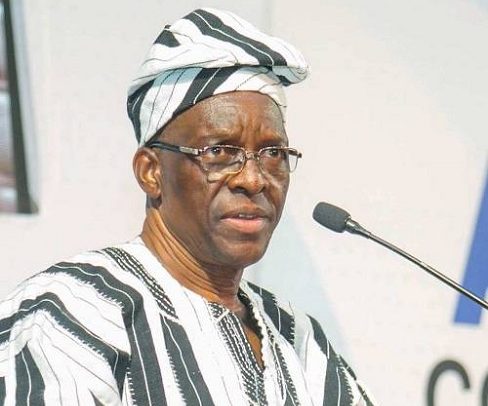Alban Bagbin
Members of Parliament (MPs) from the opposition National Democratic Congress (NDC) have expressed concern that they may become victims under Article 97 (1)(c) of the Constitution for their continuous boycott of proceedings in favour of Assin North MP, James Gyakye Quayson, if Parliament declares them absent.
Article 97(1)(c) of the 1992 Constitution says, “A Member of Parliament shall vacate his seat in Parliament if he/she is absent without the permission in writing of the Speaker and he is unable to offer a reasonable explanation to the Parliamentary Committee of Privileges from 15 sittings of a meeting of Parliament during any period that Parliament is summoned to meet and continues to meet.”
MP for North Tongu, Samuel Okudzeto Ablakwa, who is concerned that the constitution may be used against members of the Minority, yesterday appealed to Speaker Alban Bagbin not to deem them absent when they boycott proceedings.
According to him, it will be inimical to the Minority MPs’ continuous membership of the House, if the records of attendance capture them as absentees, urging for the Speaker to prevail on his officers to always mark all NDC MPs “absent with permission” since they had indicated for the record that “we are boycotting proceedings.”
“There is an obvious constitutional reason and that is why I am raising this matter. We all know that under the Constitution and Standing Orders, if members absent themselves for a number of days – 15 sittings, your seat could be declared vacant by the Rt. Hon. Speaker,” he stated.
Psychological Horror
“So my legitimate fear is, the way the records are being captured is really… and could be inimical to our continuous membership of this House if we don’t avert our minds to this.
“We have stated for the record we are boycotting proceedings. Let that reflect. Yesterday, the Hon Patrick Boamah saw us,” he asserted, while entertaining fear.
According to him, the Minority MPs, despite the boycott, come to Parliament and engage in other parliamentary duties.
He contended that MPs were all aware that the parliamentary basket contains a variety of tools for registering disagreement and protest.
“You can boycott, walkout. You can even absent yourself from voting. You can be here and decide to engage in a silent protest. They are all democratic tools available to MPs the world over,” MP Ablakwa posited.
He continued, “When we have exercised that democratic right and constitutional right, we should not be punished for it. We should not be declared absent.
“After which a number of days, if care is not taken somebody may just bring an application and say that we have crossed the threshold and our seats should be declared vacant.
“Mr. Speaker, this is not a matter to be taken lightly. There are constitutional implications and that is why I raised the matter, especially as we have more boycotts in the offing, seeing that our colleagues are adamant,” he noted.
Majority
But members of the Majority rejected the contention of the Minority members, insisting that proceedings of the House were regulated by the Standing Orders and the Constitution.
“Right from page one, those members who were present in the House were marked present. Those who were absent were recorded as having been absent, and those who were absent with permission were recorded as members who were absent with permission,” NPP MP for Okaikwei Central, Patrick Yaw Boamah stated.
He continued, “Boycotts happen when members enter the Chamber and sign as having attended the House. Sometimes, members will come, sign in and walk out.”
“When the caucus is boycotting, they notify the Speaker. In this instance, members in their rights absented themselves to solidarise with their colleague which is within their right,” he intimated.
“So my brother from North Tongu asking for you to create a line, stating that they were absent to accompany our colleague in court, I don’t think it has any place in our votes and proceedings. Once you are absent, you are absent,” he submitted.
Speaker’s Ruling
Speaker Bagbin said the issue of attendance is clearly spelt out under Article 97(1)(c) without any ambiguity, asserting, “The import of that Article is to the effect that a member can choose not to attend the sittings of Parliament.”
“A member, if he wants not to attend but be recorded as being absent because a permission has been granted, that permission has to be granted by the Speaker in writing.
“That is what guides attendance in the House. So you can choose to attend and you can choose not to attend. Now, when you choose not to attend, depending on your own action, you could be marked as absent, and that means without permission or absent with permission,” he said.
“With permission means there is evidence, not oral, but in writing that the Speaker has granted you that permission to be absent.
“The burden will not shift onto you as a group to show evidence that my good self has granted you permission to absent yourselves in writing, not verbal,” the Speaker noted.
By Ernest Kofi Adu, Parliament House


